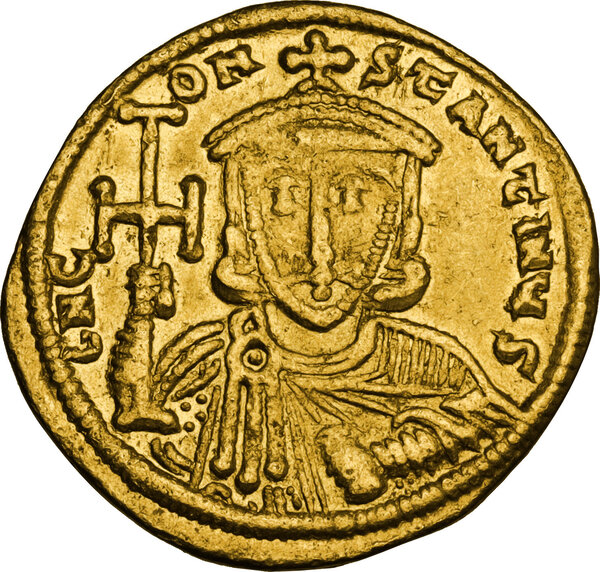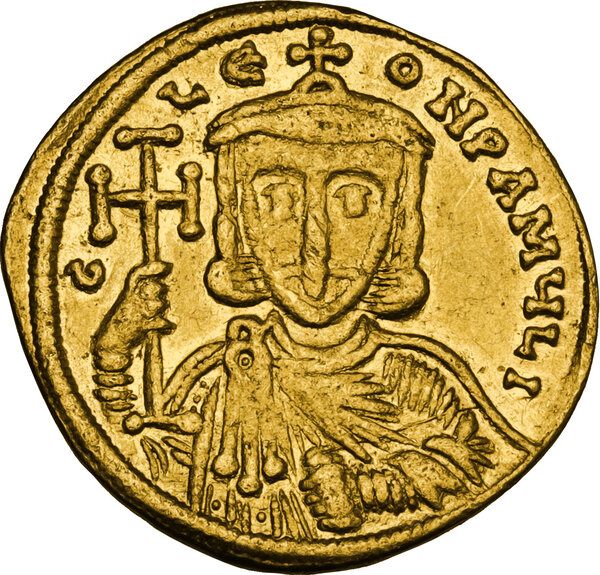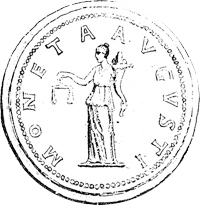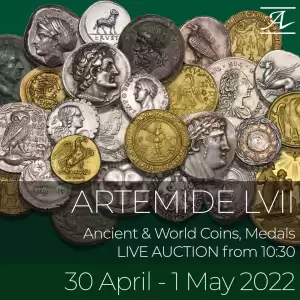

Constantine V (741-775). AV Solidus, Constantinople mint, 742-775. Obv. GN C-ON-STANTINЧS. Crowned facing bust of Constantine, with short beard, wearing chlamys pinned at right shoulder, holding cross potent in right hand and akakia in left. Rev. C- LЄ - ON PAMЧL I. Crowned facing bust of Leo III, wearing chlamys pinned at right shoulder, holding cross potent in right hand and akakia in left. D.O. 1; Sear 1550. 4.40 g. 20.50 mm. R. Rare. A handsome example, of full weight, well centred and brilliant. Good VF. Leo III was the father of Constantine V, his portrait is placed on this coin to stress the legitimacy of the rule of Constantine.
'Despite his numerous victories over foreign foes, Leo III is chiefly known for introducing the policy of iconoclasm, or the destruction of sacred images. His efforts to enforce his beliefs on an unwilling clergy and populace became a true persecution late in his reign, and were even more zealously carried out by his son and successor, Constantine V, whose long reign was marked by further military success abroad and heavy-handed repression within. Constantine’s enemies nicknamed him Copronymus, i.e. “named in dung,” because he had allegedly fouled his baptismal fountain. But his generalship proved outstanding against both the Arabs and the Bulgarians, whom he crushed at the battle of Anchialos in AD 763. The iconoclast controversy created discord throughout the Byzantine world for more than a century and counteracted many of the reforms and military victories achieved by father and son. Still, their efforts ensured the empire's survival and paved the way for the great Macedonian Renaissance in the following century.' (Heritage 3049, 2016, 30324 note).
'Despite his numerous victories over foreign foes, Leo III is chiefly known for introducing the policy of iconoclasm, or the destruction of sacred images. His efforts to enforce his beliefs on an unwilling clergy and populace became a true persecution late in his reign, and were even more zealously carried out by his son and successor, Constantine V, whose long reign was marked by further military success abroad and heavy-handed repression within. Constantine’s enemies nicknamed him Copronymus, i.e. “named in dung,” because he had allegedly fouled his baptismal fountain. But his generalship proved outstanding against both the Arabs and the Bulgarians, whom he crushed at the battle of Anchialos in AD 763. The iconoclast controversy created discord throughout the Byzantine world for more than a century and counteracted many of the reforms and military victories achieved by father and son. Still, their efforts ensured the empire's survival and paved the way for the great Macedonian Renaissance in the following century.' (Heritage 3049, 2016, 30324 note).


